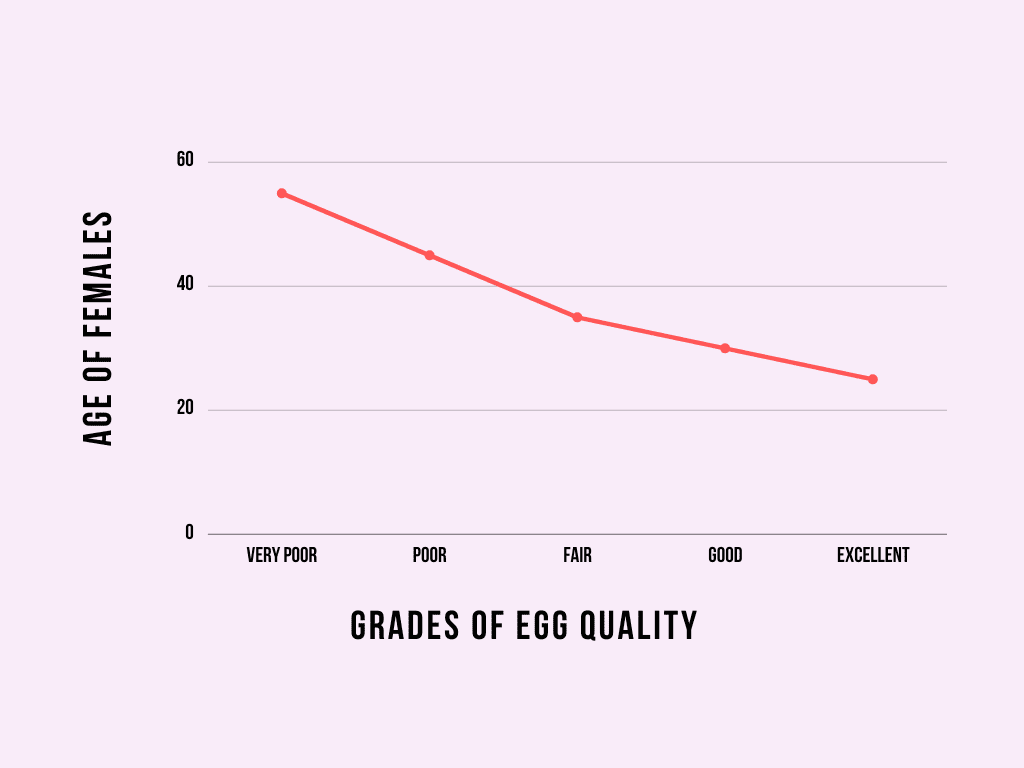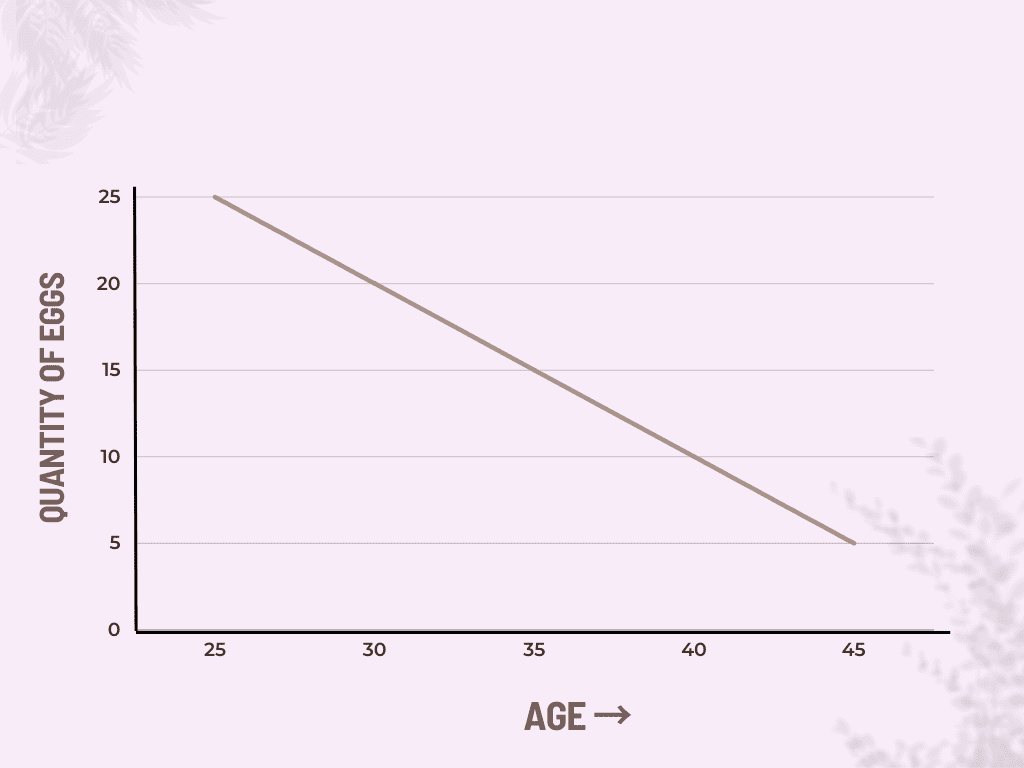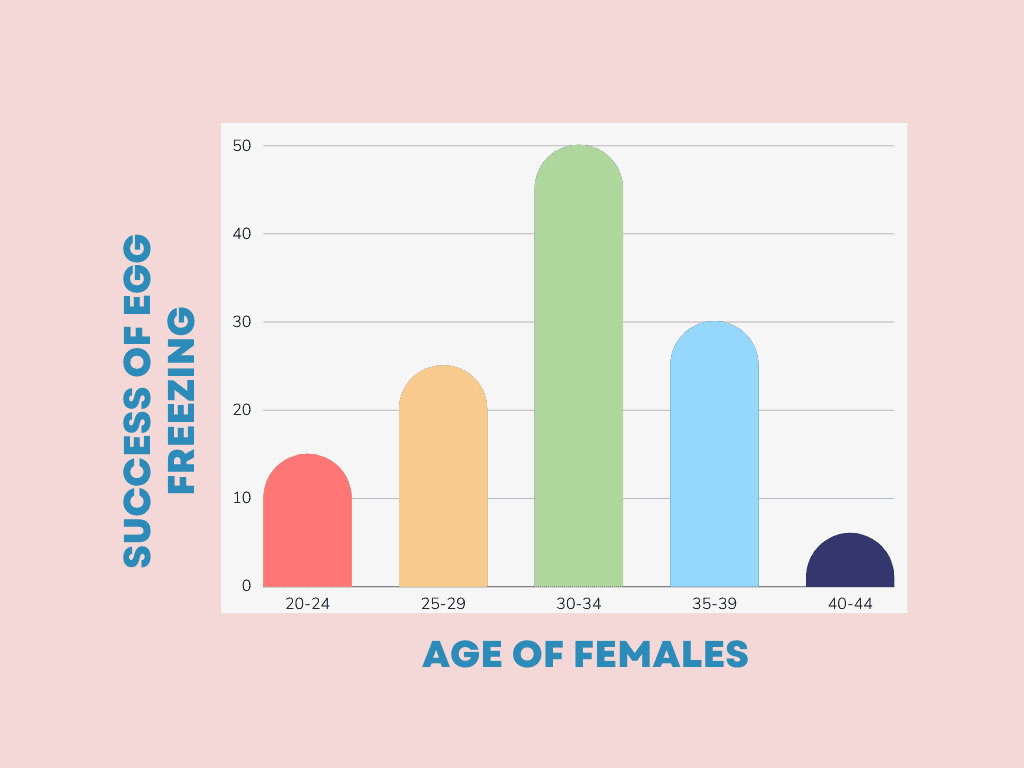Are you wondering what the ideal age for egg freezing is? You’re not alone.
Consider this: the rate of egg freezing has surged. From 2019 to 2021, there has been a 64% rise in women taking this step. By 2021, 4,215 women chose to freeze their eggs, up from 2,447 two years prior.
Egg freezing allows women to pursue their goals without giving up on having children. But it’s crucial to pick the right time to freeze your eggs. This maximizes the chances of a child in the future.
Dive in to discover when you should freeze your eggs. We’ll cover:
Table of Contents
ToggleWhat are the Success Rates for Pregnancies Using Frozen Eggs?
The success rate with egg freezing varies based on many factors. One of these is age.
Younger women are more likely to get pregnant with frozen eggs than older women. A study observed 184 egg-freezing cycles. Of these, 56% resulted in pregnancies for women aged under 38. For women over 38, this number was 29%.
Another study showed women under 35 have a live birth rate of 43% with egg freezing. For women over 42, it was 11%.
How Does Age Affect Egg Freezing Success?
Age affects both egg quality and quantity.
How Age Affects Egg Quality
Younger women, especially those under 35, have better eggs. A study of 210 women proved this. Likewise, in another study, eggs from women aged between 21 and 26 were healthier.
Here’s why egg quality decreases with age:
- Eggs from older women have 21 fewer genes that help fix DNA. Healthy DNA is vital to egg quality.
- The eggs’ mitochondria decrease with age. This is the energy source that enables eggs to develop.
- The egg’s special outside layer, zona pellucida, hardens with age. This makes it hard for sperm to penetrate it.
- The eggs develop genetic abnormalities as you age. This can lead to congenital disabilities in resulting embryos (the early form of a baby).
How Age Affects Egg Quantity
The number of eggs decreases with age. For example, in one study, researchers were 97.1% less likely to get more than three eggs from women over 35 than women under 35.
Likewise, women under 35 years harvest around 25 eggs in a cycle. For those nearing 45, that number can be about 9.
As women age:
- The number of follicles (egg nests) decreases.
- The helper cells for eggs, named cumulus cells, also fall in number and health.
- Swelling and damage in the ovaries increases.
What is the Best Age for Egg Freezing?
So far, we’ve established that freezing eggs at a younger age boosts pregnancy chances. But what is the best age for egg freezing?
In one study, women who froze their eggs in their 40s had a 6.6% chance of pregnancy. This number soared to 40% if they had frozen their eggs during their 30’s.
Most research suggests that the ideal age for egg freezing is between 30-35 years. At this age:
- You have more eggs.
- The eggs are of the highest quality.
Please remember these are general recommendations that vary based on many factors. Consult your fertility expert for a personalized range.
Are There Fertility Factors Beyond Age to Consider?
While age is critical, it’s not the only factor in egg-freezing success. The diet, lifestyle, medical conditions, and egg-handling process also matter.
The Impact of Lifestyle Choices’ on Egg Freezing Success:
Eating fruits, vegetables, nuts and fish is research-proven to increase egg-freezing success rates.
Likewise, exercise can help. A study showed that being active for more than 30 minutes over two weeks resulted in better eggs.
On the other hand, here are lifestyle habits that lower egg-freezing success:
- Eating a diet heavy in fats
- Smoking. This damages the genetic structure of eggs and thickens the outer layer.
- Alcohol
- Stress affects pregnancy rates. One study showed that feeling too anxious can lead to more negative pregnancy tests. But, using special techniques to calm the mind helped improve chances.
- Exposure to toxins can damage eggs. This makes it harder to get pregnant. Examples of such toxins include exposure to low-dose X-rays during testing.
How Medical Conditions Affect Egg Freezing Chances
Health problems can also hurt egg-freezing chances. For example, patients with Polycystic Ovarian Syndrome (PCOS) have lower chances. They have fewer high-quality eggs.
Likewise, premature ovarian insufficiency reduces egg freezing odds to 1.3%. Again, this is due to lower egg counts.
How the Egg-Freezing Process Affects Pregnancy Rates
How doctors get and handle your eggs is vital.
Here are some of the best egg-freezing practices that boost pregnancy rates:
- Collecting eggs 37 hours post-stimulation
- Storing eggs in liquid nitrogen at -196 degrees Celsius
- Warming the frozen eggs over 6 to 10 hours. This can boost the egg survival rate to 74%
Is Freezing Eggs After 35 Advisable?
Freezing eggs after 35 reduces your chances of success. But it is not impossible to get pregnant with eggs frozen after 35.
As you get older, your fertility doesn’t hit a complete stop. Sure, numbers and quality might dip, but your eggs don’t disappear.
A 2019 report by the NHS pointed out that post-35, live birth rates can be between 25% and 4%. So, while the odds might be lower, they’re not zero.
There’s still potential, and sometimes it’s about persistence. For example, a study revealed that older women needed to freeze more eggs for better outcomes. With five eggs, the success was around 5.9%. But the rate jumped to 17.3% with eight eggs.
The message? Don’t lose heart. While it may need more effort or many cycles, women over 35 still find success.
Your journey is unique, and age is one part of the story. Many women over 35 move forward with egg freezing and achieve their dreams of motherhood.
Takeaway
Fertility preservation and egg freezing are complex decisions many women face. Making informed choices based on objective evidence can make this journey smoother.
Remember, everyone’s experience with fertility is unique. It’s vital to get advice from fertility experts who understand these nuances. This ensures you’re making the best decisions for your future family planning goals. To learn more, contact us today.
Anna Haotanto is the Founder of Zora Health and a passionate advocate for women’s empowerment. Anna’s personal experiences with egg-freezing, PCOS, perimenopause and the challenges of fertility have fueled her mission to provide high-quality information, financing, and support to help women and couples navigate their fertility journeys with confidence. She is also recognised for her achievements in finance, entrepreneurship, and women’s empowerment, and has been featured in various media outlets. You can also follow her on Linkedin or Instagram.







